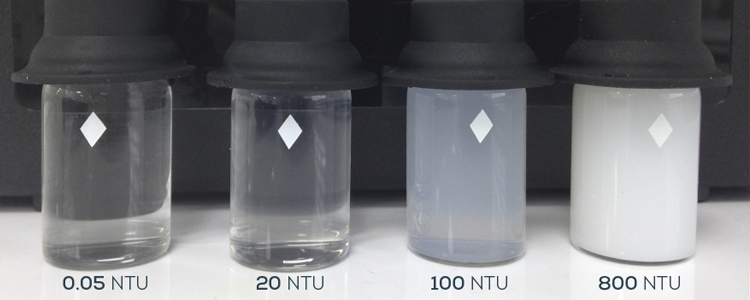Understanding Absolute vs. Nominal Ratings in Depth Cartridge Filters
When selecting cartridge filters, one of the key parameters to consider is its micron rating. This micron rating is typically defined as either absolute or nominal, and understanding the difference is critical for ensuring the cartridge filter performs effectively in your application. In this blog we explore these ratings in detail, including the role of beta ratios in depth and pleated cartridge filters.
What is a Nominal Filtration Rating?
A nominal rating shows the filter’s ability to remove a certain percentage of particles of a specified size. However, the efficiency can vary significantly depending on the manufacturer’s definition. A nominally rated filter may remove anywhere from 50% to 98% of particles at its rated micron size, making it a less precise measure of filtration performance.
Nominal filters are often used in applications where absolute filtration is not critical, such as prefiltration before finer filtration stages, coolant filtration, and bulk solid removal in general industrial processes. Because they do not provide a strict particle retention guarantee, they are not recommended for critical applications such as sterile filtration or protection of sensitive equipment.
Benefits of using Nominal Filters
- Lower Cost: Nominal filters are often more affordable than absolute filters due to their less strict standards.
- Less Restrictive: Nominal filters are less restrictive in terms of flow rate as they allow for a certain percentage of larger particles to pass through the media.
- Ideal for Large Particles: Nominal filters are ideal for applications that have large particles that need to be removed.
What is an Absolute Filtration Rating?
An absolute rating provides a much more precise measure of filtration efficiency. Depth and pleated depth filters with an absolute rating are typically tested and verified to remove at least 99.98% (or more) of particles at their rated micron size. This makes them ideal for applications requiring high levels of particle removal consistency, such as pharmaceutical production, final filtration in food & beverage processes.
Absolute filters are often characterized by a defined test method, such as particle counting or ACFTD testing, to ensure consistent performance and reproducibility of results.
Benefits of using Absolute Filters:
- Accurate Filtration: Absolute filters are highly effective in removing particles from fluid and gas, ensuring that a clean product is produced.
- Consistent Results: Absolute filters provide consistent filtration performance because they do not allow any particles larger than the stated rating to pass through.
- Ideal for Small Particles: Absolute filters are ideal for applications that have small particles that need to be removed.
The Role of Beta Ratios in Depth Filters
For depth filters, which rely on tortuous flow paths to capture contaminants, a more scientific way to measure efficiency is through the beta ratio (also known as Beta Value). The beta ratio is determined using the following equation:
β ratiox = C upstream / C downstream
where:
- C upstream is the particle concentration upstream of the filter
- C downstream is the particle concentration downstream of the filter
- x is the particle size being measured
For example, a filter with a beta ratio of 1000 at 5 microns means that for every 1000 particles of 5 microns or larger entering the filter, only one will pass through. The efficiency of removal can be calculated as:
Efficiency = (1-1/β) x 100%
Thus, a beta ratio of 5,000 corresponds to 99.98% efficiency, which is equivalent to an absolute rating. In contrast, a filter with a beta ratio of 10 at a given particle size only removes 90% of those particles, which is more characteristic of a nominally rated filter.
Choosing the Right Filter for Your Application
Understanding the differences between absolute and nominal ratings, as well as the use of beta ratios and bacterial challenge testing, is critical for selecting the right filter for your needs. Here’s a quick guide:
- Nominal filters are suitable for non-critical applications such as prefiltration, industrial water filtration, and protecting downstream equipment from bulk contaminants.
- Absolute-rated depth filters (with a beta ratio of 1000 or higher) are ideal for applications requiring highly efficient particulate removal, such as fine chemical filtration and final-stage process protection.
By understanding these key filtration parameters, you can make informed decisions that ensure best process performance and product quality.
If you have specific filtration challenges, consulting with a filtration expert can help you choose the best solution for your application. You can give us a call or send us an email - we're here to help you make the best choice for your filtration needs.
PoreFiltration – Making your filtration systems work harder



/collage.jpg)

